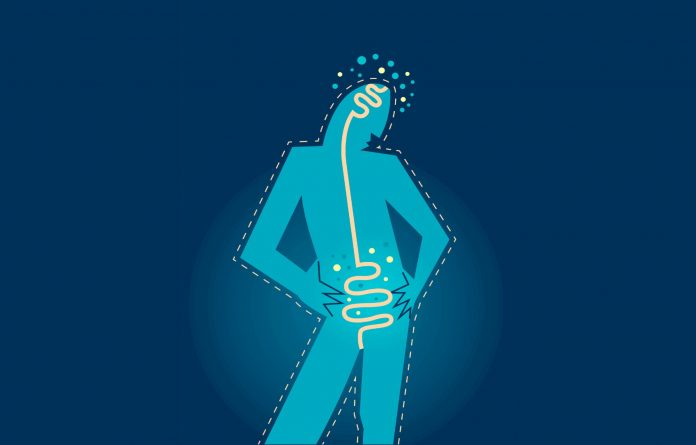The gut involves organs that help digest food and process it into waste. Gut lining is also known as second brain. The gut functions itself and communicates with your brain. The gut and brain are linked in two ways: physically and chemically. Vagus nerve is responsible for controlling messages from the gut, lungs, heart, and other essential organs, directly connects the gut to the brain. Chemical messages between the brain and the gut can be affected by viruses, bacteria, and fungi (live in gut), known as gut microbiome. Viruses, bacteria, and fungi can be beneficial or harmful. The gut is connected to the brain through chemicals such as neurotransmitters and hormones that send messages.
Gut Microbiome and Mental Health
There is a strong link between mental health conditions and gastrointestinal symptoms such as indigestion, heartburn, constipation, diarrhea, bloating, pain, and/or acidity. Depression and anxiety can lead to changes in gut microbiome because of what happens in the body when it has a stress response. Animal research reported that changes in the inflammation and gut microbiome can affect the brain; and cause symptoms such as autism, Parkinson’s disease, depression, and anxiety.
Bacteria on the Brain
Neuropsychology includes strong speculations that schizophrenia, bipolar disorder, and other neurological or psychological problems may also be linked with changes in the microbiome. Researchers believe that disturbance in bacteria in the microbiome could cause the immune system to overreact and contribute to GI tract inflammation, leading to the development of disease symptoms found not only in your whole body but also in your brain. This connection between the brain and gastrointestinal tract is called the gut-brain axis. Some researchers think that early life infections may adversely affect the mucosal membrane in the GI tract, disrupt the axis of the gut and brain, and interfere with normal brain development. Mucous membranes can also be replaced by other methods, such as poor diet, antibiotic use, radiation treatment, and chemotherapy.
How to take care of your gut?
To maintain the health of your microbiome, it is vital to maintain a balance of beneficial bacteria in your digestive tract. By eating balanced diet you can keep your gut healthy. Diets include prebiotic ingredients or probiotic supplement that help maintain microbial health by restoring gut microbiome balance. These foods contain probiotic bacteria, which are beneficial to eat, and, in the case of prebiotics, have certain types of fiber-like substances that promote the growth of probiotic bacteria.
Prebiotic foods are fiber-enriched and are more beneficial in raw form. Try to eat bananas, asparagus, onions, garlic, or ginger. If you can’t eat in raw form, you can steam them lightly to get the most of their benefits. Berries, apples, tomatoes, and mangoes are good as well. Probiotic foods can be difficult to take. Bacteria type and amount vary in probiotics, and bacteria often die when heated food. Some probiotic foods are yogurt, kimchi, unpasteurized sauerkraut, kefir, kambocha, miso soup, and apple cider vinegar.
Conclusion
Yes, the gut influences mental health; there is a strong link between mental health problems and gastrointestinal symptoms such as indigestion, heartburn, constipation, bloating, acidity, pain, and/or diarrhea. Depression and anxiety can cause changes in the gut microbiome because of what happens in the body when it has a stress response.







